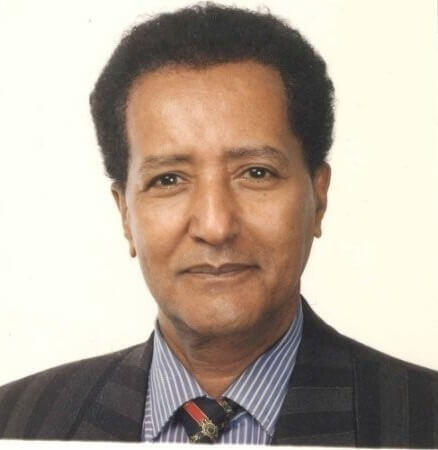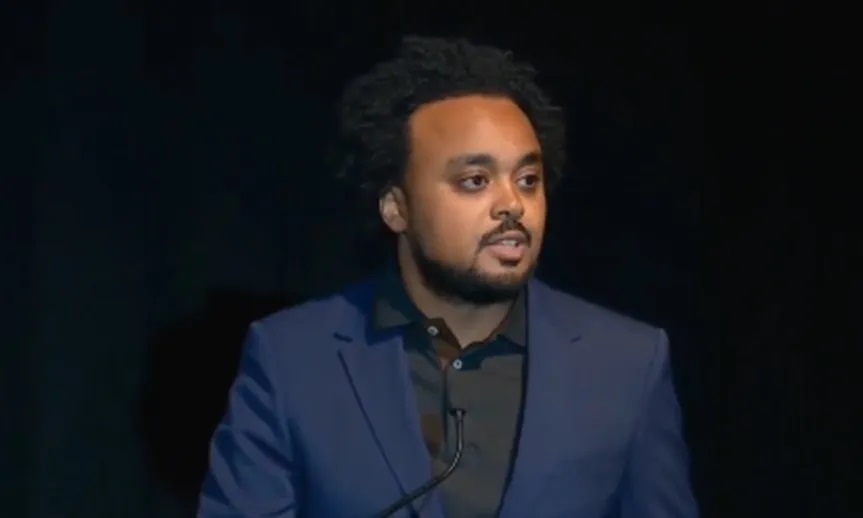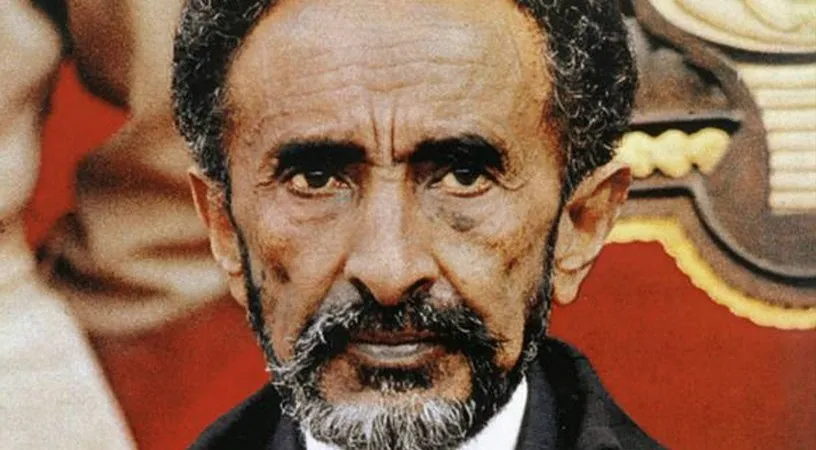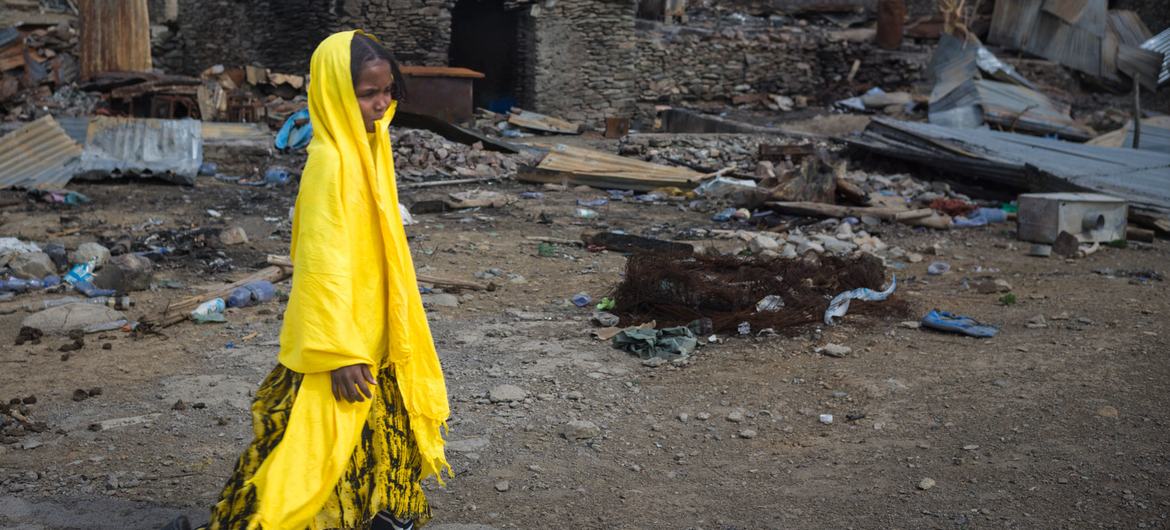
There is much confusion and consternation in the Ethiopian community in North America over the fact that the democrats on the House Subcommittee on Africa, Global Human Rights, and International Operations of the House International Relations Committee voted against a bill in subcommittee titled the “Ethiopian Freedom, Human Rights and Democracy Act (HR 4423), introduced by subcommittee chair Rep. Christopher Smith (R-N.J.). Many Ethiopians are perplexed by the fact that the ranking democrat on the subcommittee, Donald Payne — an African American supported by other African American representatives on the Subcommittee — should spearhead the opposition to HR 4423. Perhaps out of a sense misplaced ethnic solidarity, many Ethiopians thought the African American members of the Subcommittee would take the leadership in promoting human rights, the rule of law and democracy in Ethiopia. This turn of events appears to have been an epiphany to many Ethiopians in the U.S. who are now openly questioning the value of their allegiance to the Democratic Party. HR 4423 is a piece of legislation designed to promote human rights, due process and the rule of law in Ethiopia. It requires the unconditional and immediate release of all political prisoners in Ethiopia and demands legal protections for journalists along with guarantees of free speech rights for Ethiopian citizens, offers support and training for human rights groups working in Ethiopia, and provides for technical assistance to Ethiopian law enforcement authorities to ensure due process of law in the administration of justice, among other things. Donald Payne offered a substitute amendment which sought to provide assistance to Ethiopia to strengthen local, regional, and national parliaments and government agencies, promote reconciliation efforts between the Government of Ethiopia and opposition political groups, and facilitate participation of opposition groups in the political process. Payne’s failed substitute consisting of lofty platitudes did not call for the immediate release of political prisoners nor did it require compliance with various human rights issues boldly featured in HR 4423. Part of the confusion and bewilderment among Ethiopians on the voting patterns of the democrats on the subcommittee may stem from a lack of understanding of the history of the Republican Party and their uncritical allegiance — bordering on blind faith — to the Democratic Party. Many Ethiopians subscribe to popular misconceptions about the Democratic Party, and know even less about the Republican Party or its history. Conventional wisdom has it that the Democratic Party in the United States is the defender of human rights, democracy and freedom not only in America but also throughout the world. Democrats are said to be champions of the poor and weak and advocates of civil liberties and social justice. On the contrary, the Republican Party is often depicted as the party of the “rich,” mostly white and conservative, and unconcerned with the plight of the downtrodden and the dispossessed. Republicans are portrayed as indifferent and insensitive to the cause of human rights and individual liberties. The historical facts negate the conventional wisdom. When the Republican Party was formed in the early 1850s, it was impelled by two factors: an abolitionist ideology committed to the eradication of the institution of slavery — an institution that is the very antitheses of human rights– and economic modernization driven by robust business institutions and a strong national government. In 1856, the first Republican presidential candidate, John Freemont, adopted the slogan “Free soil, free labor, free speech, free men, Fremont,” which summed up the essential concerns of the early Republicans. When republican Abe Lincoln became president in 1860, he had to decide whether to go to war with his Southern brothers over the issue of slavery. Lincoln understood the grave consequences of liberating the slaves — the real possibility of disintegration of the Union– but he affirmed the humanity and human rights of the slaves by boldly issuing the Emancipation Proclamation against weighty advice to the contrary. This decision made Lincoln a reluctant partner in a civil war that was fought in no small part over the question of slavery. The Republican Party did not stop with a proclamation telling the slaves they were free. After the Civil War, republicans played a pivotal role in amending the U.S. Constitution to abolish slavery altogether and guarantee the former slaves the equal protection of the laws and the right to vote. But they did not stop with constitutional amendments. During Reconstruction — the period after the Civil War when the defeated southern states were reintegrating into the Union — the republicans pushed a number of bills in Congress which had a decisive effect on the lives and rights of the newly freed slaves. Progressive republicans known as “radical republicans” advocated for and secured more legal protections for the freed slaves, and Congress passed the Civil Rights Act of 1866 — overriding a presidential veto for the first time in U.S. history– recognizing blacks as U.S. citizens and guaranteed them a whole panoply of economic and political rights. In 1869, the first blacks were elected to Congress as members of the Republican Party, and continued to serve as part of the republican delegation until 1935 when the first black Democrat joined them. Republicans continued to defend human rights and remained in the forefront of the struggle for women’s right to vote, providing the decisive ratification victory in the various states for the 19th Amendment. Montana sent the first woman and republican member of Congress — Jeanette Rankin who incidentally was the only member of Congress to vote against U.S. involvement in the two world wars– in 1917. Needless to say, the Democratic Party was conspicuously absent in the long march for human rights, until the civil rights movement in the 1960s when it discovered the electoral value of black voters. Unlike Jimmy Carter who pronounced the May, 2005 elections in Ethiopia as “fair and free,” Ronald Reagan in 1982 stood in the British Parliament and predicted the “march of freedom and democracy will leave Marxism-Leninism on the ash-heap of history as it has left other tyrannies which stifle the freedom and muzzle the self-expression of the people.” A few years later, he stood at the Brandenburg Gate in West Berlin, and issued his challenge: “General Secretary Gorbachev, if you seek peace, if you seek prosperity for the Soviet Union and Eastern Europe, if you seek liberalization: Come here to this gate! Mr. Gorbachev, open this gate! Mr. Gorbachev, tear down this wall!” HR 4423 is the legislative equivalent of Reagan’s challenge to Gorbachev to “tear down this wall.” The bill states in its preamble that its purpose is “to encourage and facilitate the consolidation of security, human rights, democracy, and economic freedom in Ethiopia.” It contains a simple message: “Mr. Zenawi, if you seek peace, if you seek prosperity for Ethiopia as you say you do, if you seek liberalization, release the political prisoners you have packed in your jails, respect the rule of law and ensure due process of law in your courts, allow your citizens and journalists to engage free speech and free press. Respect the human rights of your citizens! Regimes planted by bayonets do not take root.” It is obvious and natural that the Republican Party should reflect a diversity of views and opinions across the ideological spectrum. The important point is that there are republicans such as Chairman Smith, Representatives Royce, Tancredo, Flake, Mark Greene, Boozman and Fortenberry on the Subcommittee, who believe in the original republican principles of “Free soil, free labor, free speech, free men” and women. They have proven their commitment to our cause, the cause of human rights in Ethiopia! As we ponder HR 4423, we should perform a reality check and see if we have misplaced our trust and relied upon misguided political alliances. We should candidly ask ourselves whether we believe in equal rights, equal justice and equal opportunity for all regardless of race, creed, gender, age or disability, free enterprise and individual initiative, fiscal responsibility and low taxes, democracy, freedom and human rights throughout the world and the principle that the “the best government is that which governs least.” These are core republican principles. It may be that the moment of truth has arrived for many Ethiopians in America to decide one way or the other. As they say, this is the time to fish or cut bait! As we express our gratitude to Chairman Smith and the other republicans on the Subcommittee — and each one of us who supports HR 4423 must do so by email, letter, fax or telephone– we should remind ourselves that “a friend in need is a friend indeed!”















